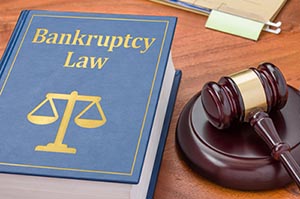What is Bankruptcy?

Bankruptcy is a legal method to eliminate debts and stop creditor action. It is a process that can relieve you of your debts and allow you to start rebuilding your credit. Bankruptcy provides you with important protections that start when your bankruptcy case is filed in court. When you file bankruptcy you get the immediate protections of the automatic stay. This means that creditors must immediately:
- Stop calling you or sending you letters
- Stop collection lawsuits that have been started against you
- Stop the foreclosure process for your home
- Stop trying to repossess your vehicle
- Stop garnishing your wages
How Does Bankruptcy Work?
Bankruptcy will not destroy your credit to the point that you will never get a credit card, buy a car or be able to purchase a house. The common held belief that bankruptcy will forever destroy your credit and will eliminate your ability to get any type of credit is so far from the truth. In fact, bankruptcy can be your starting point to eliminate debt that may be causing your credit score to remain low.
Bankruptcy works to help you eliminate debts that based on your current financial situation you cannot afford to pay. When you file for Chapter 7 bankruptcy you are using the law to assist you in resolving your debts. It informs your creditors that your current income is not enough to repay their debts. Filing for Chapter 7 bankruptcy is not the death of your credit score. It can be a stepping stone to rebuilding your credit score. In Chapter 7 bankruptcy you generally do not pay your creditors back the debts. When you receive a discharge in your bankruptcy case, it means that you are no longer liable for your discharged debts. A creditor cannot seek to collect a discharged debt through contacting your or filing a lawsuit against you . Even if your financial situation improves after your bankruptcy discharge, the creditors in your bankruptcy cannot seek to collect these debts.
In some cases you may have sufficient income to support yourself and pay your creditors at least some of the debt back. In this situation Chapter 13 bankruptcy may be away to help you reduce the monthly payments that you are paying back to creditors. A Chapter 13 bankruptcy generally ranges from 3 to 5 years. The amount of the payment will in most cases be based on looking at your earnings and your monthly household expenses. Filing for Chapter 13 bankruptcy can help reduce the time in which you pay creditors back and the amount that you pay back by eliminating the interest rate paid to unsecured creditors (credit cards, personal loans, pay day loans). It also allows you to pay back first any recent federal and state tax debt. In many cases you are only paying a percentage of your debt back and at the end of your plan term the rest of the dischargeable debt will be eliminated.
